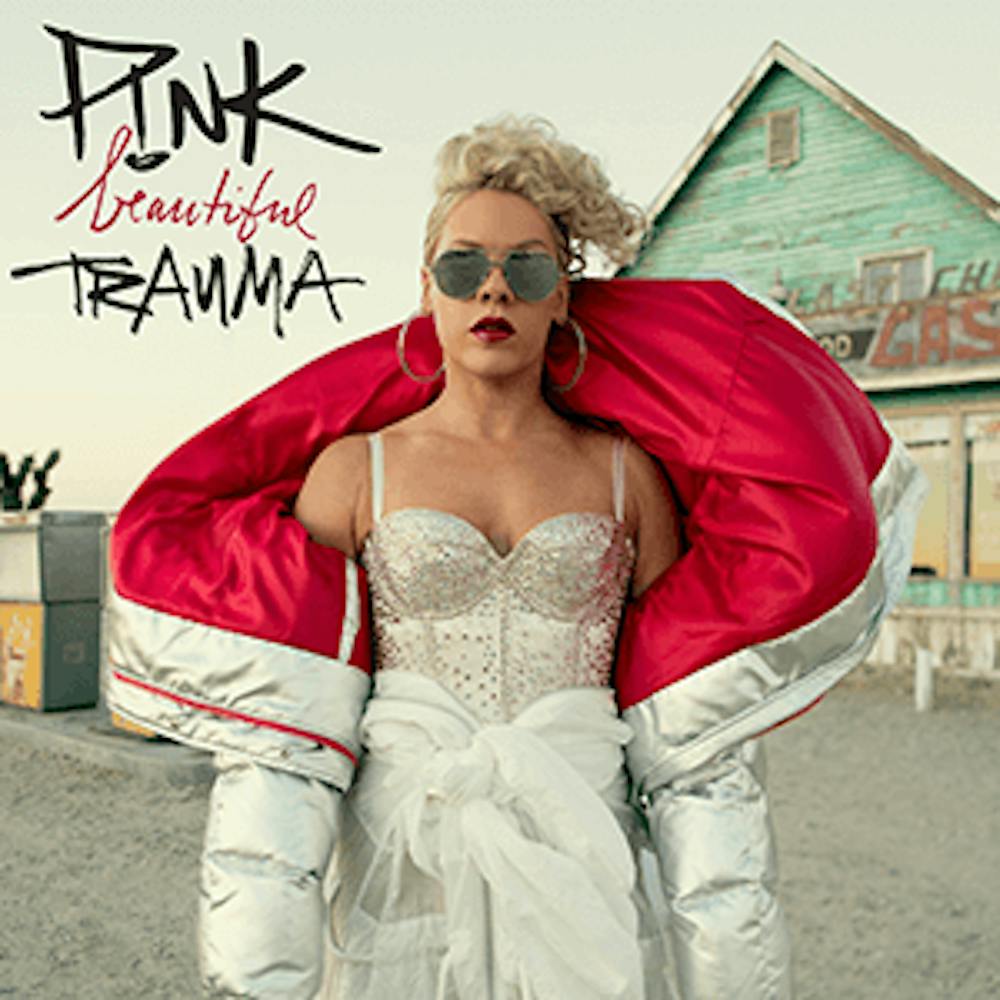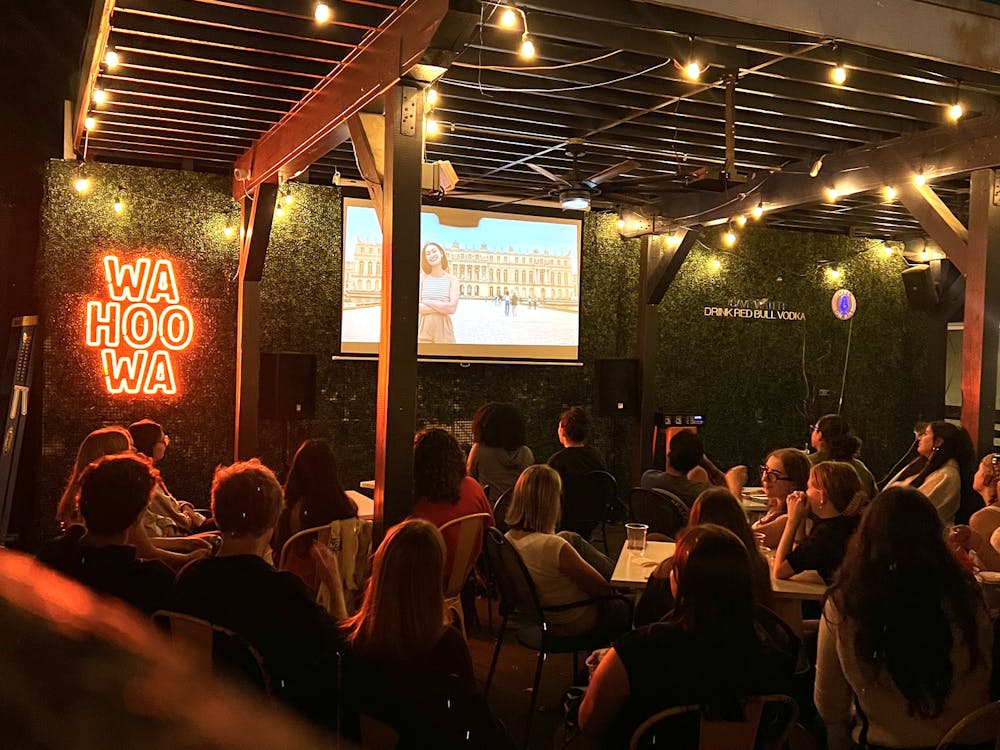Alecia Moore — best known as P!nk — has been widely regarded as pop music’s edgiest female vocalist for nearly two decades. She released her debut album,“Can’t Take Me Home,” in 2000, two years after going solo and leaving R&B girl group Choice. Since then, P!nk has been presented as the toughest girl in pop.
Her style, buzzed blonde hair and outspoken opinions work alongside her blunt and brutally honest lyrics to create commentary on both herself and the world around her. Be it inner demons or political turmoil, P!nk is constantly fighting back against something, with most of her albums’ tracks switching from personal to political and back again.
Take for example her 2006 album, “I’m Not Dead.” Audiences hear deeply personal tracks — such as “Who Knew” about her denial surrounding the decline of her relationship — as well as the social justice anthem “Dear Mr. President,” which explicitly critiques the policies of then-President George Bush. P!nk’s albums have featured this undercurrent of resistance for her entire career and her latest release, “Beautiful Trauma,” is no exception.
“Beautiful Trauma” employs resistance in a vastly different way than her other albums, however. In this album, the personal and political planes collide. The lines dividing the two are much less defined and P!nk’s intentions much more ambiguous. It is harder to categorize the tracks as definitely intimate or definitely social statements as P!nk has instead woven the categories together, finding an intersection where the themes do more than coexist on the same album — they coexist within the same songs.
In “What About Us” — the first single released promoting the album — fans could clearly hear this intersection. The chorus of the song rings personal, with Moore singing, “What about us? / What about all the times you said you had the answers? / So what about us? / What about all the broken happy ever afters?”
These lines seem to denote romance, with P!nk using first person to address a lover she no longer trusts. Later, the song appears to undergo a political shift as P!nk sings, “It’s the start of us, waking up, come on / Are you ready? I’ll be ready.” In this verse, she seems to be initiating a call to arms, using the second person to create unity with the listener in order to rise up against some sort of societal oppression.
There are moments in the album that definitely lean more personal than political and vice versa. “Revenge” — written in collaboration with Eminem — presents the rage and betrayal of being cheated on in a romantic relationship, and “Barbies” is a soulful exploration of P!nk’s insecurities about aging and her intermittent desires to return to childhood where playing dolls was all she had to worry about.
In the same vein, other tracks are more politically fueled. “I Am Here” delves into P!nk’s resilience. She sings, “I am here, I am here / I've already seen the bottom, so there's nothing to fear / I know that I'll be ready when the devil is near / Cause I am here, I am here / All of this wrong, but I'm still right here.”
Even the political voice in “I Am Here” shades more personal than some of her other political anthems. Moore isn’t explicitly shouting for change or attacking the oppressor as she has in past releases such as “Stupid Girls,” a catchy yet serious song about the lack of ambition in young girls that exists due to rampant gender norms. “I Am Here” fuses Moore’s identity with her resistance. No longer is she presenting her personal life and her political views separately — she now presents the two as braided together. She is simultaneously personal and political.
The reasoning behind this shift to combine themes can be found in her inspiration for the album, which she discussed with Michel Martin on “All Things Considered,” a National Public Radio broadcast.
“‘I think life is really traumatic,” P!nk said, “but I also think that there's really beautiful people in the world, and there's more good than bad, and there's love to be made and joy to be had … But, you know, my dad always says something to me — ‘I wish you enough.’ And what he means by that is, I wish you enough rain to be able to enjoy the sunshine. And I wish you enough hard times to be able to enjoy the easy bits. And that's beautiful trauma to me.’”
The titular track of the album reflects this sentiment, presented by P!nk as a sort of battle between good and bad. She sings, “You punched a hole in the wall and I framed it / I wish I could feel things like you / Everyone's chasing / That holy feeling / And if we don't stay later we'll blow out / Blow out.” These lines exemplify the comparison between the negative and the positive, yet also how the two bleed together to coexist in harmony.
In this album, P!nk recognizes the vulnerability of life and its susceptibility to change. Living can be arduous one moment, glorious the next. “Beautiful Trauma” exhibits the roller coaster of life as an exhausting process that can require resistance and resilience in and of itself. Yet, resistance doesn’t always have to be loud or provocative. Sometimes, existence alone can serve as a form of resistance. With “Beautiful Trauma,” P!nk shows that this subtle side of opposition can be just as emotional and effective for audiences and activists everywhere.







